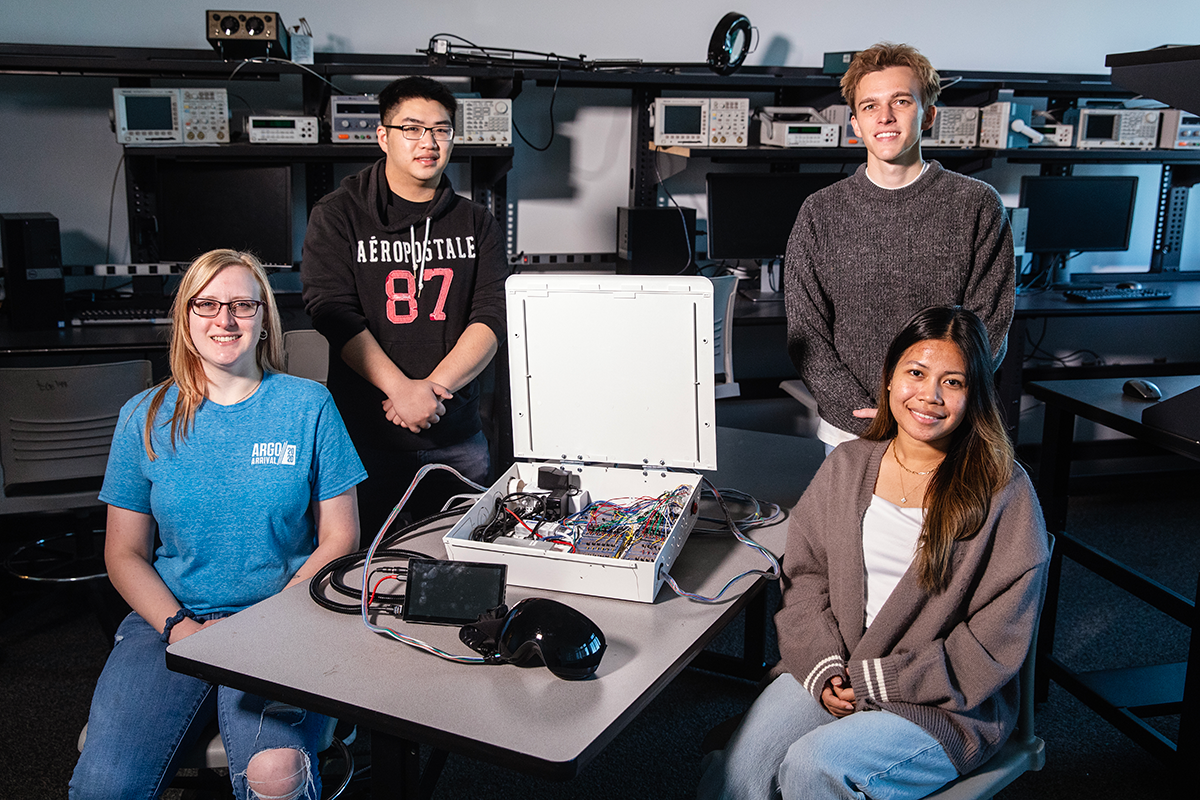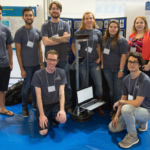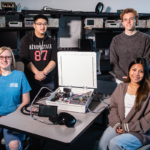UWF faculty and students develop goggles for early detection of Alzheimer’s Disease
University of West Florida faculty and undergraduate students recently developed Pulsed Medical LED goggles for the early detection of Alzheimer’s Disease. The product was researched and designed through a partnership between the Department of Psychology, Department of Physics and Dr. Muhammad Harunur Rashid Department of Electrical and Computer Engineering at UWF.

Dr. Mohamed Khabou, professor in the Dr. Muhammad Harunur Rashid Department of Electrical and Computer Engineering and associate dean of the Hal Marcus College of Science and Engineering, Dr. Aaron Wade, associate professor in the physics department and Dr. James Arruda, professor of psychology in the Usha Kundu, MD College of Health, connected to work on the product. For the past several years, Arruda, a research neuropsychologist, has researched brain-behavior relationships like those related to Alzheimer’s dementia and mild cognitive impairment.
Arruda started making the goggles two years ago and realized he needed to make them with special enhancements for those who are color-deficient. He further understood that everyone has a unique number and distribution of visual receptors that allow for color vision. The goggles were developed to detect how the brain responds to a flash of light, whether it be for the detection of a seizure disorder or for the early detection of Alzheimer’s dementia. In either circumstance, the results would allow someone to prepare ahead of time and seek treatment options. For example, delayed signaling in one area of the brain suggests participants with mild cognitive impairment — an early stage of Alzheimer’s dementia — have compromised cholinergic functioning that resulted in impaired visual processing in the cerebral cortex.
“It dawned on me that not everyone’s visual system is the same, so I wanted to tailor the light to maximally influence the visual receptors in an individual’s eyes,” Arruda said. “Not everyone has all four types of visual receptors and if someone is color deficient that indicates that they are missing one type of visual receptor. So we are attempting to tailor the physical properties of the light to maximize the response of someone’s visual receptors so we can get an appropriate response from the brain.”
Arruda, Khabou and Wade sought improvements in its design and usability from students. Sierra Kautz, who just graduated with her bachelor’s degree in electrical engineering earlier this month, began working on the product as part of a capstone project in January 2023. She and colleagues Mark Yepishin, Judy Aquino and Dustin Tran built a circuit and designed a user interface to control the product.
“We were given LED boards designed by Dr. Wade and we had to figure out the best way to wire the circuits to control the LEDs,” Kautz said. “We wrote a lot of code to allow them to have full control over it and adjust different brightness levels.”
The student team and faculty worked together to test to make sure light levels were safe for anyone who put the goggles on.
“The project really made me realize how much of an impact electrical engineering can have in other fields,” Kautz said. “I’m thankful for the leadership experience and knowledge I gained.”
The product is undergoing additional testing and development and will be worked on with additional students from the Department of Psychology, Department of Physics and Dr. Muhammad Harunur Rashid Department of Electrical and Computer Engineering in spring.
For more information about UWF’s Hal Marcus College of Science and Engineering, visit uwf.edu/hmcse. For more information about UWF’s Usha Kundu, MD College of Health, visit uwf.edu/ukcoh.



